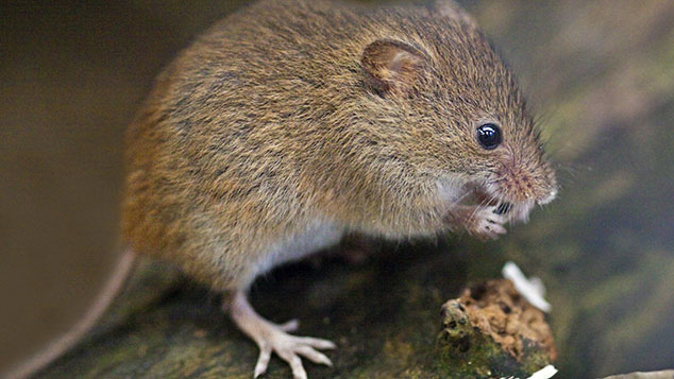
Conservation staff are responding to reports a mouse has been seen on a pest-free island in the Hauraki Gulf.
Department of Conservation Auckland inner islands operations manager Keith Gell said a Tiritiri Matangi visitor reported seeing what he believed to be a mouse while walking on Ridge Track.
"A rodent-detecting conservation dog and its handler investigated the possible sighting. The dog indicated to its handler that she smelt a mouse, about 30m from the spot where the visitor believes he saw a mouse," he said.
"We need to know if there is, or isn't, a mouse on Tiritiri Matangi. So, we're setting up a response effort to determine if a mouse has made it to the island."
Tiritiri Matangi has been free of animal pests, including mice, since 1993.
It's home to a wide range of native birds including takahe, kiwi pukupuku (little spotted kiwi) and kokako. There are also tuatara, wetapunga and five types of native lizard on the island.
Mice on the island could be devastating to the native wildlife. They eat the chicks of native birds and destroy their eggs by puncturing the shells; eat native lizards and native insects that provide food for native birds; and eat native plants, stopping them from regenerating, and depriving native birds of food.
To find out if there is a mouse on Tiritiri Matangi a 200m radius detection zone is being set up around the site of the possible mouse sighting. Rangers are placing devices in that zone to detect a mouse. The devices are being placed 25m apart and will blanket the zone.
The detection devices will include 300 mouse traps; 500 detection tunnels, with ink pads that record a mouse's footprints; and 200 chew cards, that record a mouse's teeth marks. The traps, tunnels and chew cards would be baited with peanut butter or white chocolate buttons, which are proven to attract mice.
"We'll also be using one of the pest detection dogs, from the Conservation Dogs Programme supported by Kiwibank, as part of this operation to determine if there is a mouse on Tiritiri Matangi," Gell said.
He reminded people to be aware of the risk they could inadvertently be bringing an unwanted pest to the island when they visited.
"We have biosecurity systems in place to protect these pest-free sanctuaries because there's an ever-present risk of a pest making it to one of these islands.
"As part of our biosecurity systems, we've activated this plan to determine if a mouse has made it to Tiritiri Matangi."
Take your Radio, Podcasts and Music with you









